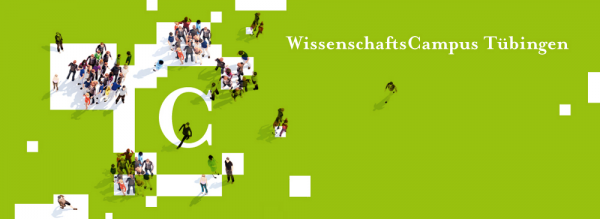

The Leibniz-WissenschaftsCampus Tübingen "Informational Environments" is the first Leibniz-WissenschaftsCampus nationwide in the context of the identically named initiative by the Leibniz-Gemeinschaft. The Leibniz Knowledge Media Research Centre (IWM) along with the University of Tübingen initiated this interdisciplinary reseach network to link university and non-university research.
Lifelong learning is no longer a mere idea but has become something most people in our society take for granted. However, lifelong learning is by no means limited to traditional, formal, and institutional contexts, but is increasingly found in informal contexts as well. Modern media, in particular the World Wide Web, are perfectly suited for the latter type of learning. These developments are changing the educational landscape altogether. From this wealth of information at their hands, learners combine distinct elements according to their interests, needs, and abilities, which they access on a regular basis. This personalised subset of knowledge is called "informational environment".
The Leibniz-WissenschaftsCampus Tübingen "Informational Environments" does use-inspired, interdisciplinary, multi-method empirical research on how informational environments provide learning opportunities for 21st century citizens, but also on how technologies must be shaped in order to counteract barriers and biases to learning.
The Leibniz-WissenschaftsCampus objective is to establish a denser network with a clear strategic focus to further the development of empirical educational research in Tübingen and to strengthen the scientific field dealing with this topic. For this purpose, the Leibniz-WissenschaftsCampus Tübingen bundles expertise from psychology, sociology, educational research, computer science, economics, media science, and medicine.
Further partners are the Centre for European Economic Research Mannheim, the University of Freiburg, the Freiburg University of Education, the German Institute for Adult Education Leibniz Centre for Lifelong Learning Bonn and the Stuttgart Media University.

Tübingen is a special place for research. Very few locations offer such a wide range of research areas in such close proximity - both physically and figuratively. Not only are all of Tübingen's research institutions just a stone's throw away from each other, they also collaborate closely within the Tübingen Research Campus.
Visit page
Life in Tübingen is life in the heart of Europe and in one of Germany's most scenic and economically competitive regions. It's a bustling mediaeval town with a young, international, and vibrant population and a rich cultural and artistic scene. Lectures, concerts, film festivals, and more: life in Tübingen never gets boring.
Visit page
The Neurosciences in Tübingen with more than 100 active research groups have the potential to rank among the most successful neuroscientific sites in Europe.
Visit page